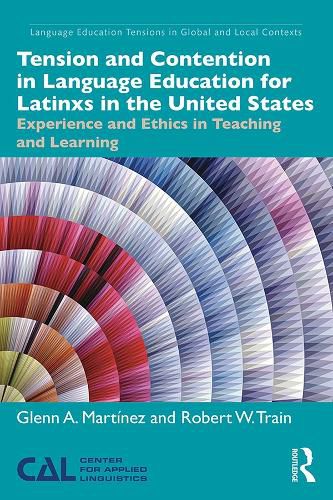Readings Newsletter
Become a Readings Member to make your shopping experience even easier.
Sign in or sign up for free!
You’re not far away from qualifying for FREE standard shipping within Australia
You’ve qualified for FREE standard shipping within Australia
The cart is loading…






Applying a critical lens to language education, this book explores the tensions that Latinx students face in relation to their identities, social and institutional settings, and other external factors. Across diverse contexts, these students confront complex debates and contestable affirmations that intersect with their lived experiences and social histories. Martinez and Train highlight the pedagogic and ethical urgency of teacher responsibility, learner agency and social justice in critically addressing the consequences, constraints, and affordances of the language education that Latinx students experience in historically-situated and institutionally defined spaces of practice, ideology and policy.
Reframing language studies to take into account the roles of power, inequality, and social settings, this book provokes dialogue between areas of language education that rarely interface. Through privileging the learner experience, the book provides a window to the contested spaces across language education and generates new opportunities for engagement and action. Offering nuanced and insightful analyses, this book is ideal for scholars, language researchers, language teacher educators and graduate students in all areas of language education.
$9.00 standard shipping within Australia
FREE standard shipping within Australia for orders over $100.00
Express & International shipping calculated at checkout
Applying a critical lens to language education, this book explores the tensions that Latinx students face in relation to their identities, social and institutional settings, and other external factors. Across diverse contexts, these students confront complex debates and contestable affirmations that intersect with their lived experiences and social histories. Martinez and Train highlight the pedagogic and ethical urgency of teacher responsibility, learner agency and social justice in critically addressing the consequences, constraints, and affordances of the language education that Latinx students experience in historically-situated and institutionally defined spaces of practice, ideology and policy.
Reframing language studies to take into account the roles of power, inequality, and social settings, this book provokes dialogue between areas of language education that rarely interface. Through privileging the learner experience, the book provides a window to the contested spaces across language education and generates new opportunities for engagement and action. Offering nuanced and insightful analyses, this book is ideal for scholars, language researchers, language teacher educators and graduate students in all areas of language education.